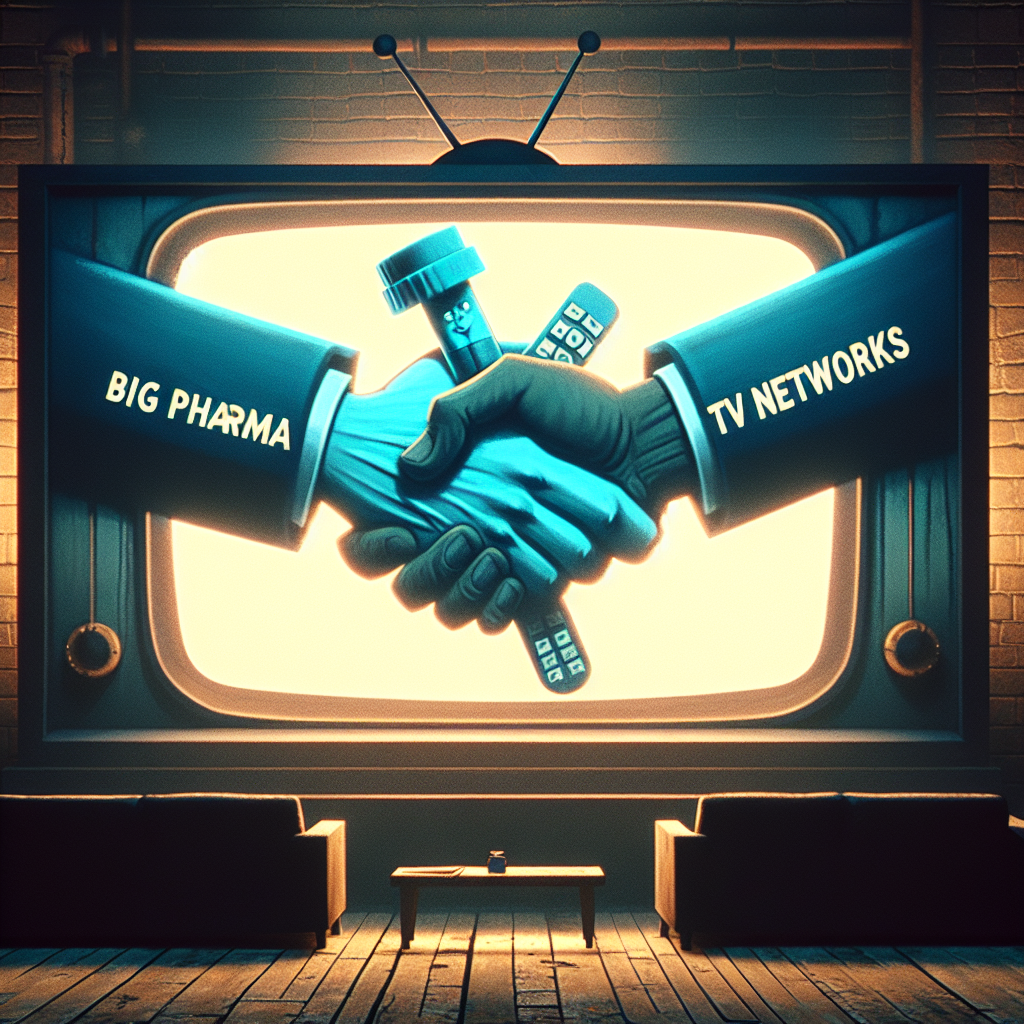As we age, we often gain valuable insights into the nature of our relationships, recognizing that some are detrimental to our well-being. One particularly troubling dynamic has come to light in the context of news reporting: the relationship between television networks and the pharmaceutical industry, which many argue is abusive and toxic. This concern was recently echoed by Robert F. Kennedy Jr. during an appearance on Tucker Carlson Live. The mainstream media’s adherence to pharmaceutical narratives raises larger questions about integrity and transparency in journalism and public health discourse.
A notable illustration of this concerning dynamic was demonstrated in a recent interview on CNN featuring Kaitlan Collins and Howard Lutnik, co-chair of the Trump/Vance transition team. Despite Collins’ attempts to challenge Lutnik regarding Donald Trump’s potential partnership with Kennedy to reform health policies, Lutnik’s candid support for Kennedy’s expertise on health matters visibly unsettled Collins. His claim that the rise in autism cases correlates with increased mandatory vaccinations conflicted sharply with Collins’ reliance on the widely accepted assertion that vaccines are unequivocally safe—a clear echo of pharmaceutical industry messaging. This encounter exemplifies how embedded pro-pharmaceutical narratives can constrict journalistic dialogue, leaving reporters ill-equipped to challenge established talking points.
The relationship between these media outlets and Big Pharma is underscored by the staggering expenditures the industry commits to advertising, which amounted to $6.86 billion in 2021 alone. This financial dependency subtly obliges networks to align their reporting with pharmaceutical interests. The implications of such financial ties are profound: instead of emphasizing preventive health measures such as nutrition and exercise, the media tends to promote a narrative that prioritizes medication as the panacea for illness. It indicates a broader compulsion to cultivate fear surrounding health, urging audiences toward pharmaceutical solutions rather than tabling alternative approaches that may empower citizens to take control of their health.
Moreover, the issue of accountability arises when analyzing the role the media plays in perpetuating these narratives. Reporters, akin to Kaitlan Collins, often find themselves constrained by a lack of alternative data or dissenting perspectives on vaccination and public health. This limitation cleverly obscures the story of individuals like Poul Thorsen, a former CDC contractor implicated in fraudulent studies that aimed to disprove links between vaccines and autism. As Thorsen remains free while important truths about vaccine safety are suppressed, the media misses critical opportunities to inform the public about underlying issues within health governance.
Further complicating this relationship is the case of William Thompson, a whistleblower within the CDC who made alarming revelations about data manipulation related to vaccines and autism. Thompson’s silence, despite having crucial information that could challenge mainstream narratives, reflects a broader trend of opaque handling of vaccine-related discussions. This avoidance of dialogue regarding the implications of vaccine safety continues to feed into a culture of suppression regarding alternate health narratives. It is essential to question why mainstream news outlets shy away from reporting these significant issues, particularly when they involve the health of vulnerable populations—namely, children.
Given this context, the onus falls on political figures like Donald Trump and policymakers to critically assess the influence of the pharmaceutical industry over public discourse. Ending direct-to-consumer advertising for pharmaceuticals could be a significant first step toward reclaiming journalistic integrity and fostering a healthier discourse around medical treatment and preventative care. A brighter future for America’s health lies in dismantling the pharmaceutical industry’s grasp on media narratives and, by extension, public opinion, ensuring that citizens receive balanced and truthful information regarding their health choices.

